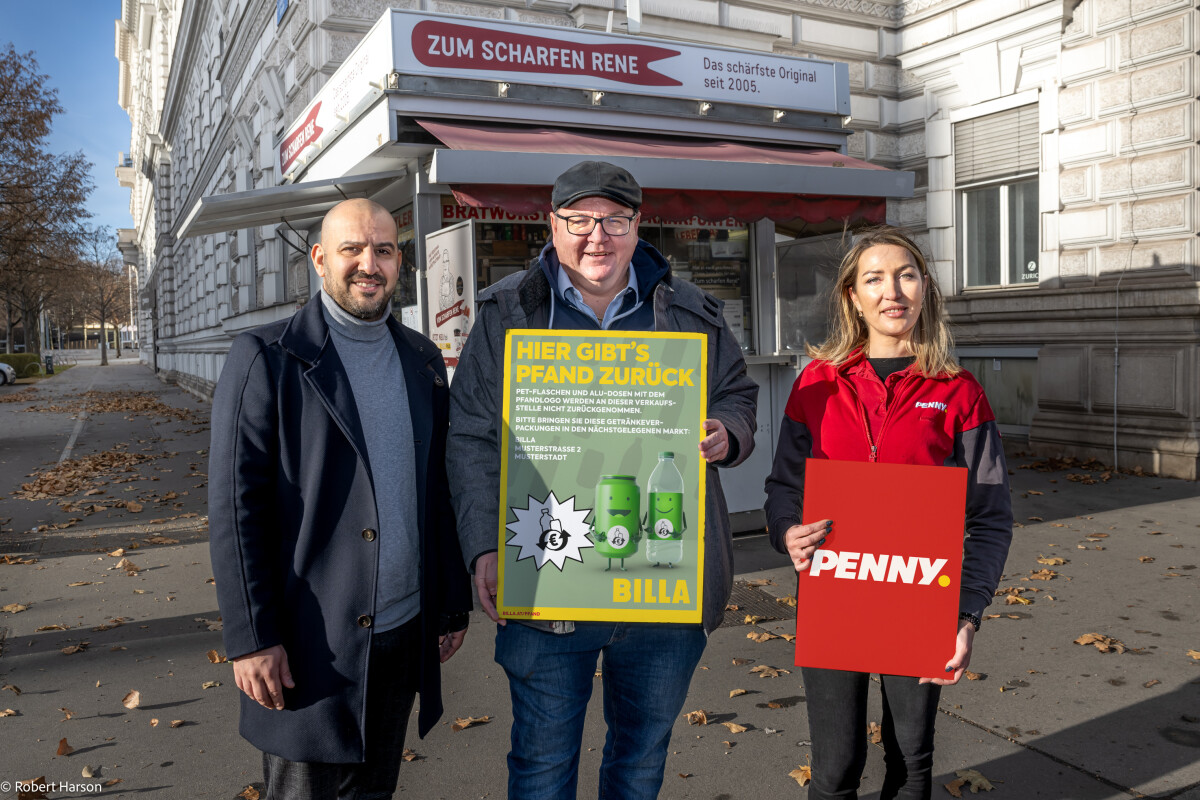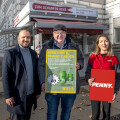BILLA and PENNY offer themselves as alternative single-use deposit return points for small businesses
The new deposit system for disposable plastic and metal drinks containers will be introduced at the beginning of the year. In principle, every sales outlet that hands out single-use containers with a deposit to its customers is also obliged to take them back and pay out the deposit. This poses a particular challenge for smaller businesses such as tobacconists and sausage stands as well as vending machine operators. BILLA and PENNY would like to support them by offering smaller points of sale the opportunity to refer to BILLA and PENNY stores in the immediate vicinity as alternative return points free of charge from 1 January 2025. BILLA and PENNY are the first food retailers in Austria to offer this service.

(from left to right): Hamed Mohseni (BILLA Sales Director), René Kachlir (Chairman of the Association of Sausage Stands and operator of the ‘Zum scharfen René’ stand in Vienna) and Nada Tosic (PENNY employee) are delighted about the new cooperation between BILLA and PENNY for the collection of deposits from small businesses. / Copyright: © REWE Group / Robert Harson, Reproduction for PR purposes free of charge
DownloadAt a glance
-
BILLA and PENNY offer alternative return points for sold single-use deposit containers at smaller sales outlets like sausage stands and newsagents
-
This service is provided free of charge to entrepreneurs in all BILLA and BILLA PLUS markets as well as PENNY stores across Austria
-
BILLA and PENNY are the first grocery retailers nationwide to provide this low-threshold support offering







